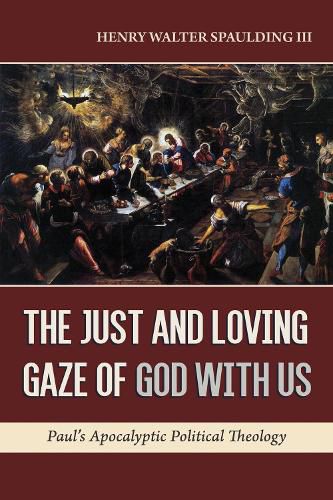Readings Newsletter
Become a Readings Member to make your shopping experience even easier.
Sign in or sign up for free!
You’re not far away from qualifying for FREE standard shipping within Australia
You’ve qualified for FREE standard shipping within Australia
The cart is loading…






This title is printed to order. This book may have been self-published. If so, we cannot guarantee the quality of the content. In the main most books will have gone through the editing process however some may not. We therefore suggest that you be aware of this before ordering this book. If in doubt check either the author or publisher’s details as we are unable to accept any returns unless they are faulty. Please contact us if you have any questions.
In recent years, Paul has become the subject of renewed interest among political philosophers. These philosophers deploy Paul as a means to deconstruct late modern political issues such as liberalism, biopolitics, and sovereignty. However, these philosophers ultimately truncate Paul’s message to fit nontheistic, materialist ends. Such an approach polarizes interpreters, often leading either to a full endorsement or full rejection. In this work, Spaulding adds a needed voice in this conversation. By neither fully endorsing nor fully rejecting the new approach to Paul, Spaulding argues that Paul’s message is both materialist and faithful to the Christian tradition. Spaulding critically utilizes both the new approach and recent studies in apocalyptic interpretations of Paul in order to articulate a Pauline political theology for our time. Pauline apocalyptic emphasizes the already disruptive nature of the incarnation, crucifixion, and resurrection of Jesus of Nazareth that wrests humanity from under the sovereignty of the fallen powers and places them under the Lordship of Christ. Apocalyptic is nourished by the promise of the eschatological hope of the not-yet-finished work of Christ. The church that follows the Lordship of Christ is called forth into being in the tension of the present Lordship of Christ and the not-yet transformation of the cosmos. Such a tension begets practices that form the political commitment of what philosopher Iris Murdoch calls the just and loving gaze, namely the central conviction that, in order to live good (political) lives, one must be taught to see.
$9.00 standard shipping within Australia
FREE standard shipping within Australia for orders over $100.00
Express & International shipping calculated at checkout
This title is printed to order. This book may have been self-published. If so, we cannot guarantee the quality of the content. In the main most books will have gone through the editing process however some may not. We therefore suggest that you be aware of this before ordering this book. If in doubt check either the author or publisher’s details as we are unable to accept any returns unless they are faulty. Please contact us if you have any questions.
In recent years, Paul has become the subject of renewed interest among political philosophers. These philosophers deploy Paul as a means to deconstruct late modern political issues such as liberalism, biopolitics, and sovereignty. However, these philosophers ultimately truncate Paul’s message to fit nontheistic, materialist ends. Such an approach polarizes interpreters, often leading either to a full endorsement or full rejection. In this work, Spaulding adds a needed voice in this conversation. By neither fully endorsing nor fully rejecting the new approach to Paul, Spaulding argues that Paul’s message is both materialist and faithful to the Christian tradition. Spaulding critically utilizes both the new approach and recent studies in apocalyptic interpretations of Paul in order to articulate a Pauline political theology for our time. Pauline apocalyptic emphasizes the already disruptive nature of the incarnation, crucifixion, and resurrection of Jesus of Nazareth that wrests humanity from under the sovereignty of the fallen powers and places them under the Lordship of Christ. Apocalyptic is nourished by the promise of the eschatological hope of the not-yet-finished work of Christ. The church that follows the Lordship of Christ is called forth into being in the tension of the present Lordship of Christ and the not-yet transformation of the cosmos. Such a tension begets practices that form the political commitment of what philosopher Iris Murdoch calls the just and loving gaze, namely the central conviction that, in order to live good (political) lives, one must be taught to see.